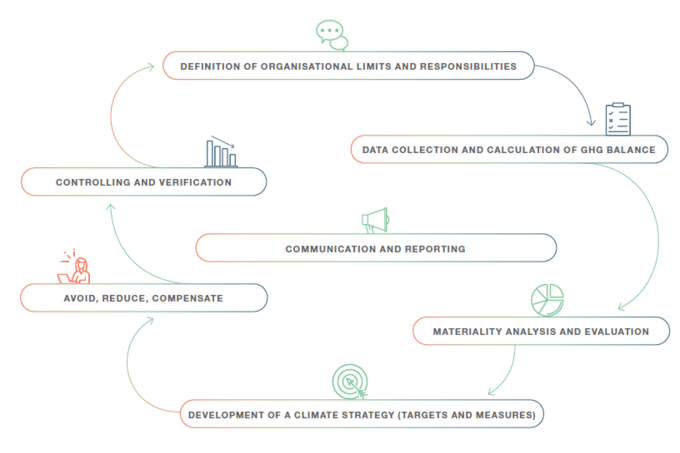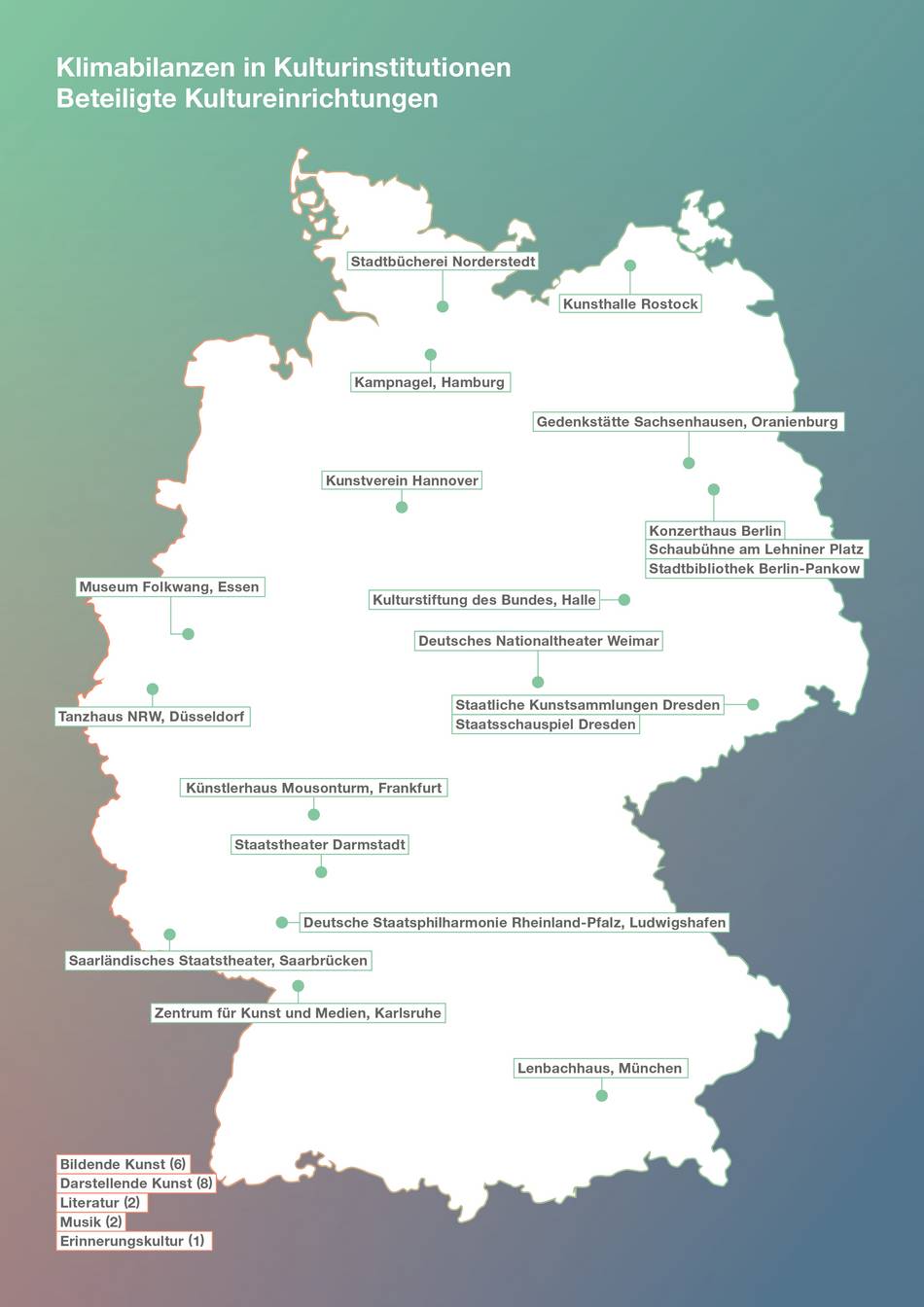Description of the project
CO2 emissions are one of the chief causes of climate change and reducing them is one of the most urgent challenges of the 21st century. The climate protection goals of the Paris Agreement can only be achieved if they are acknowledged as a task that concerns all of society. This applies to art and culture which play a crucial role in creatively shaping the transformation process and making it comprehensible and tangible to the public through artistic examination. As artists and cultural institutions reflect on their own environmentally relevant production conditions, they often find themselves unable to implement concrete measures because they lack funding, face bureaucratic hurdles or possess insufficient expertise for taking action. As a result, the climate impact of art in Germany has long remained an unknown which more and more participants now wish to study in detail.
The pilot project “Carbon Footprinting in Cultural Institution” was initiated by the German Federal Cultural Foundation. It enabled 19 cultural institutions to measure their CO2 emissions and calculate their individual carbon footprint in a so-called “convoy process”. The aim was to test a model for carbon footprinting in the cultural sector, and thereby provide other cultural organisations with a tool for achieving climate neutrality. During a four-month process, the participating institutions not only obtained greater transparency with respect to their CO2 emissions, they also received climate coaching to encourage in-house knowledge transfer on ways to improve their climate-impacting activities. A central goal of the project was to determine how environmental sustainability could be promoted on a larger scale within the funding system of the German Federal Cultural Foundation in partnership with the institutions themselves.
Tools for action
Carbon footprinting is an important tool for conducting CO2 status analyses: How large is the carbon footprint of an organisation? How are emissions distributed among its fields of activity? In what areas can the carbon footprint be significantly improved? Knowing their carbon footprint, cultural institutions can respond to demands for sustainable and environmentally friendly operations and improve their credibility by demonstrating the will to change their practices. Avoiding or reducing CO2 emissions not only makes for good cultural and climate policy; it also makes sense from an economic point of view. For example, the environmentally friendly, low-carbon procurement variants in 10 out of 15 typical product groups have lower life-cycle costs than conventional procurement variants (see the study by the Öko-Institut (PDF, 239 KB) (external link, opens new window, German only) (external link, opens in a new window) from 2015 conducted on behalf of the Berlin Senate Administration for Urban Development and Environment).
19 cultural institutions in the pilot group
This pilot project was carried out in the form of a “convoy process” – an approach that allows various organisations to work collaboratively with experts, share and benefit from their experience, and learn from one another. The pilot group comprised a broad spectrum of artistic fields – visual arts, performing arts, literature, music, commemorative culture – and represented institutions of varying sizes, local conditions and prior experience. The following institutions participated in the project:
- Deutsches Nationaltheater Weimar
- Deutsche Staatsphilharmonie Rheinland-Pfalz, Ludwigshafen
- Gedenkstätte Sachsenhausen
- Kampnagel Internationale Kulturfabrik, Hamburg
- Konzerthaus Berlin
- Kunsthalle Rostock
- Künstlerhaus Mousonturm, Frankfurt
- Kunstverein Hannover
- Lenbachhaus, München
- Museum Folkwang, Essen
- Saarländisches Staatstheater, Saarbrücken
- Schaubühne am Lehniner Platz, Berlin
- Stadtbibliothek Berlin-Pankow
- Stadtbücherei Norderstedt
- Staatliche Kunstsammlungen Dresden
- Staatsschauspiel Dresden
- Staatstheater Darmstadt
- tanzhaus nrw, Düsseldorf
- Zentrum für Kunst und Medien, Karlsruhe
Contakt
Dr Sebastian Brünger
Kulturstiftung des Bundes
Franckeplatz 2
06110 Halle (Saale)
Tel.: 49 (0)345 2997 163
Fax.: 49 (0)345 2997 333
E-Mail to Dr Sebastian Brünger


